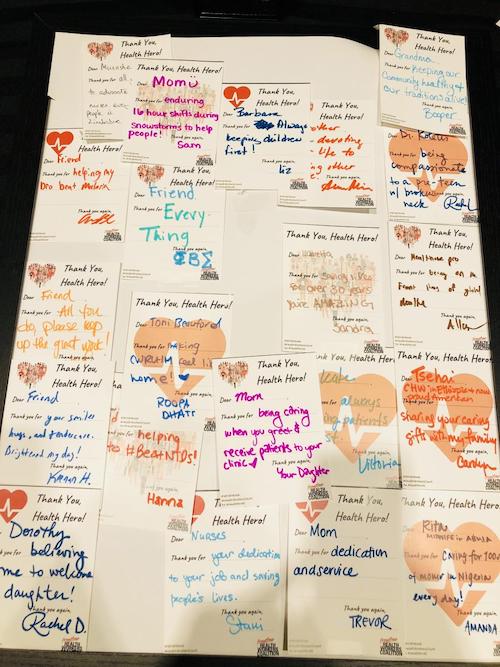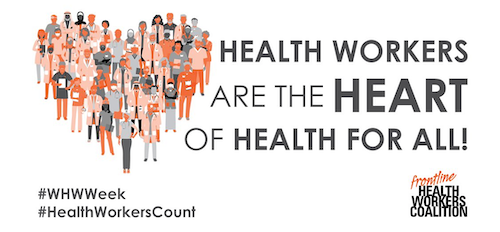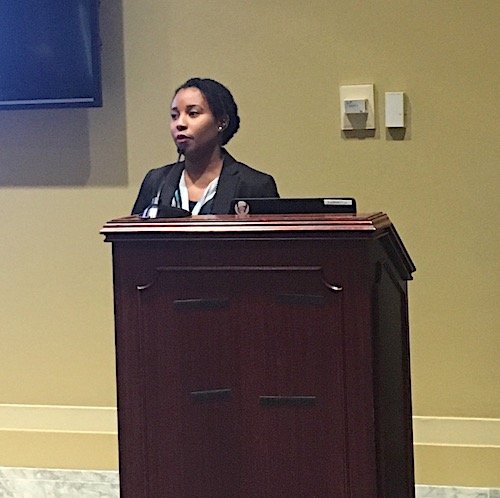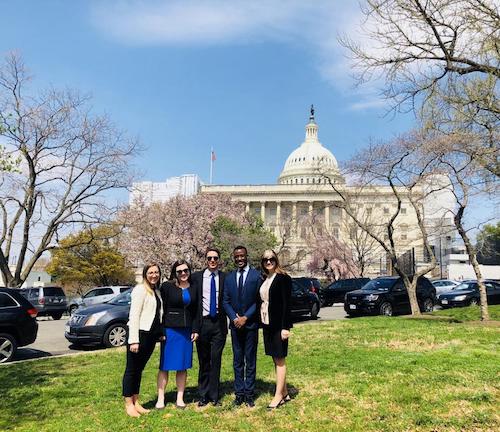We spent today on Capitol Hill in Washington DC educating US lawmakers and their staff on the tremendous impact frontline health workers have in their communities.
DRASA joined the Frontline Health Workers Coalition (FHWC) and other advocates to meet with 9 US Congressional offices, share recommendations for US Congress, and advocate for frontline health workers.
Who are frontline health workers?
They are caretakers and educators. Without them, there would be no health services for millions of families worldwide.
They give vaccines and treat infections. They are on the frontlines of battling deadly diseases like Ebola and HIV/AIDS, and many people rely on them to help prevent, treat, and manage a variety of killer illnesses. They risk their lives to keep us all safe. Just as Dr. Adadevoh and her team did.
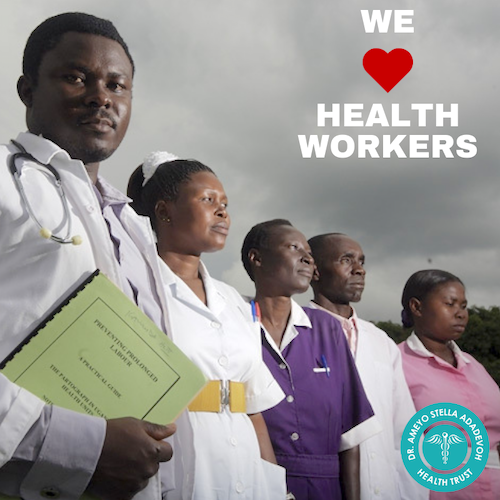
Why advocate for frontline health workers?
The US is a major funder of health interventions in Nigeria and other developing countries so we were pushing for more strategic investment in frontline health worker teams around the world as we know that investing in frontline health workers can save lives, jumpstart economic growth (especially among women), and prevent global health disasters.
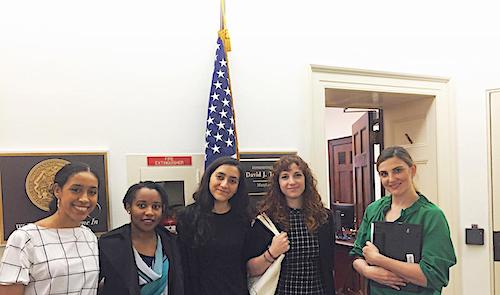
After the visits to US Congress, we participated in a reception for nearly 100 people, including 52 Congressional staffers.
The goal of the reception was to celebrate and honor the contributions of frontline health workers around the world and the essential nature of their work, celebrate successes, and highlight the challenge ahead to ensure the global health workforce can progress.
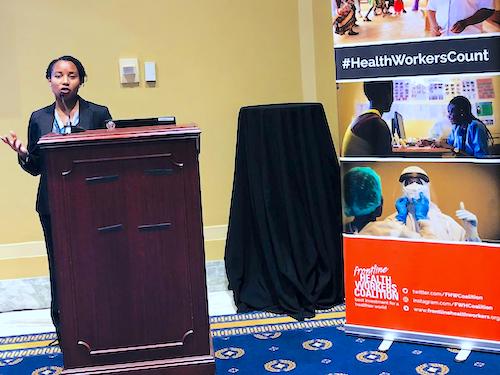
DRASA’s MD Niniola Soleye shared the bravery of frontline health workers, who like Dr. Ameyo Stella Adadevoh, risk their lives to keep us healthy and safe.
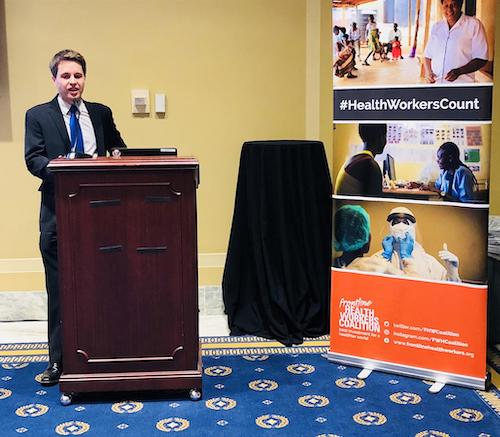
Vince Blaser, Director of FHWC and Senior Policy and Advocacy Advisor at IntraHealth, spoke about the need to recognize the roles and contributions of different types of frontline health workers – from community health workers to doctors – as well as the importance of bipartisan US leadership and contributions for frontline health workers.
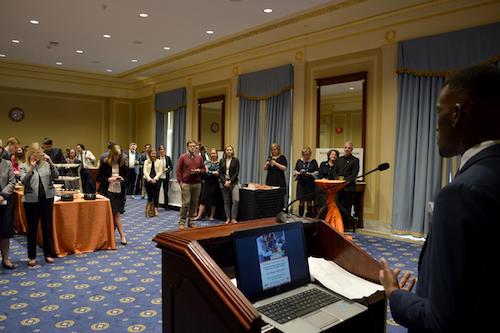
Munashe Nykia from Zimbabwe spoke about growing up seeing his family and his community ill and wanting to help, which drove him to where he is today – impacting his community through his work as a nurse. As an active advocate for investment in health workforces globally, he’s working to raise the profile of nurses as health workers who play a crucial role in health promotion, disease prevention, and treatment and thus need support and training.
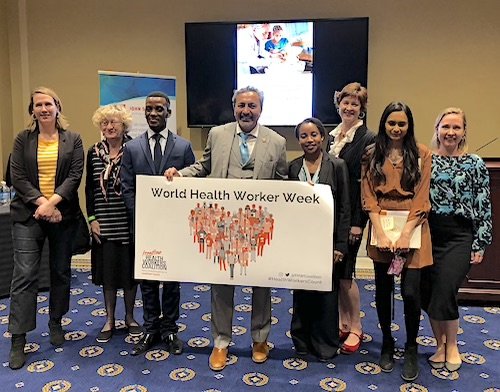
It was a great day and we were thrilled to be with people fighting for those who contribute so much to our societies but may not be able to advocate for themselves.
Let’s continue to ensure the voices of our dedicated health workers are heard and they are empowered to continue serving our societies – keeping us healthy and safe!
